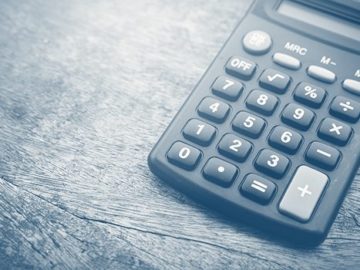Be Physically and Fiscally Healthier in the New Year
 By Ellie Kay, Personal Finance Expert
By Ellie Kay, Personal Finance Expert
Our lives are driven by good and bad habits. While good habits allow us to reap positive rewards, bad habits can produce the negative consequences of excessive debt and overweight bodies. Each year, we make resolutions to try to encourage the good and curb the bad. But trying is not enough, we must train our minds to respond differently to the health and wealth challenges we face.
Since habits have such power in our lives, it makes sense that discovering our bad habits and replacing them with productive ones would be a wise use of our time and energy. This is why my co-author, Danna Demetre and I wrote the new book: Lean Body Fat Wallet. Here we identify three habits that can dramatically transform your body and wallet:
1. The 3D Habit: The 3D habit deters you from succumbing to temptation to seek instant gratification. The three “D”s are easy to remember (each stands for a way to change bad habits into healthy ones): determine—distract—delay.
Whenever you realize that you are going to be in a situation that may challenge your resolve to stick to your new health or financial plan, determine beforehand how you are going to handle it. Rather than just responding to the situations as they emerge, give some forethought to common and occasional circumstances that may test you. You can practice new strategies to distract yourself from the temptation and to delay gratification until the time you decide is appropriate in light of your desired goal.
2. The In and Out Habit: Everyone knows that if you eat more calories than you burn, you will gain weight. Similarly, if you spend more money than you make, you will find yourself in deep debt. Yet too many people ignore the impact of little indulgences and expenditures on their bottom line, and find themselves with extra pounds and debt to shed. Being consistently conscious of your intake versus output is a habit worth forming. Most people err greatly when “guesstimating” their intake of calories or expenditures. Gaining awareness of these details can turn the tables favorably on your lifestyle. Tracking is a great way to get on top of this.
For health tracking, try a free app like “My Fitness Pal” to keep up with calories taken in and exercise burning off those calories. For tracking finances, try an interactive budgeting guide or a savings calculator.
3. The sustainable Lifestyle Habit: Most resolutions focus on finding short-term fixes to long-term problems, which is generally a recipe for failure. The vast majority of people who pay off consumer debt using home equity loans end up acquiring comparable or greater debt within two years. The same is true for people who follow a fad diet. These temporary band-aids can actually produce more problems down the line and unless you want to still be plagued with a heavier body and lighter pockets in your golden years, it is best to habitually seek solutions that will produce lasting results.
Instead of making extreme weight loss goals resolve to change your behavior one thing at a time – add five more minutes of activity each day or eat one less dessert.
When it comes to debt reduction, focus on taking bite-sized chunks instead of looking for a way to eradicate it all at once using expensive alternatives. And when it comes to wealth building and growing your nest egg, focus on accumulation and regular income, rather than pure growth can be the way to go. Adding conservative financial vehicles to your retirement plan, like fixed indexed annuities, can insulate you from volatility and risk, which will offer growth and a steady lifetime income.
When you follow the habits outlined here, making wise health and wealth decisions will become automatic. Which habits can you to try and implement in your daily routine so that you can live a healthier and wealthier life?



